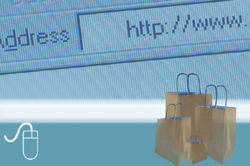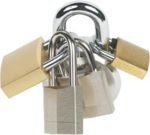Guidelines for Trusted Websites
From Giftypedia
There's nothing wrong with finding new websites to purchase from -- the beauty of the web is its ability to connect you to millions of products from tens of thousands of retailers all across the US and the world. On the web, you can find uniquely creative items that you just can't find in your local mall -- which is great.
Though, along with the ease and variety of online shopping, it can also be a place for the unscrupulous to attempt to scam consumers. How do you know if a website is one you can trust or one set up to take you money?
Below are a few things you can check to help verify the credibility of an e-commerce website.
[edit] Does the site offer a secure checkout area?
This is one of the biggest red flags when making a purchase at a website, the website needs to have a secure checkout area. When you are in the in the checkout area (creating a username/password, entering your credit card info), the URL/link should start with https://. Most browsers nowadays will color the https:// green or use a green bar. If it doesn't have the https://, or it shows up as red or crossed out, you should not make a purchase at that website.
[edit] How did you get to the website?
If the answer is email, or a link from an obscure website, you should check the URL/link at the top of your web browser to make sure you're actually on the website you think you are. Recently, scammers have resorted to making their website look like a popular, well known website to steal credit card numbers. By checking the URL/link you can verify that you're on the real website. If you see a URL/link that looks like the one below, that is a big warning sign...
http://www.amazon.com@asdfeal0ldapllapadbacakodfadieadaellladfa.afalldbo.com/
At first glance, the link above looks like it is from Amazon.com, but if you read the rest of the link, you are actually on the website afalldbo.com.
If in doubt, go to your web browser and type in the website you want to go to. That way, you'll be sure you're on the correct site. Always be suspicious of emails that seem to offer something too good to be true and seem to be unsolicited in nature.
[edit] Does the site look professional and organized?
Use your instincts. Does the website look like a professional well-organized website? Does it have more than just a couple of pages. A legitimate e-commerce website is a business and should have ample space dedicated to describing their products/business, order status checking, contacting them, their return and privacy policies.
Is the information on the website up to date? If you find a site with a lot of outdated information beware. Credible websites should have up to date information. A website with very out of date information should be avoided.
Just because a website looks good doesn't necessarily mean it's legit. With modern software, it has become easier to put together a decent looking website quickly. Doing this professional look check will help to point out websites that may need additional investigation before establishing a comfort level with them.
[edit] How credible is their contact information?
If you can easily find the contact us link this is a good sign. It means that the company is not hiding from you. They want you to be able to contact them if you need too. When evaluating the potential retailer's contact information, review the following as clues to the retailer's credibility...
- Do they include a telephone number? If so, this is a good sign. It's an even better sign if it's a toll free number. Call the number just to ask a quick question. This way you can see if an actual person is available to answer your call. If you have to leave a message, do they return your call promptly or at least the next business day? Does their phone system and staff sound professional, or does it sound like it is being run out of their house or apartment?
- Do they include an email address? Subtract points if the email address is a free email service like XXX@aol.com, XXX@hotmail.com or XXX@gmail.com. Most established websites will have an email with their business name. If all you have is an online form to fill out that without an email address or a phone number, that is not good. A legitimate e-commerce site should have some other way to be contacted.
- Is there a physical address posted? Most legitimate businesses will have some type of address listed on their site. It doesn't matter if it is a street address or a PO box. If they don't have one, that is a potential warning sign.
[edit] Additional Items to Check
If you're still not sure about the company and would like to have more of a piece of mind, the following are a few quick checks you can make to help you decide...
- Check their site's registration record. You can use a domain lookup tool such as GoDaddy.com to view who owns/administers that domain and how long they've had it. Be on the lookout for newly created websites, or sites where the contact/company/location information doesn't seem to match up with what you find on their website.
- Check with the Better Business Bureau. Review their complaint history and the Better Business Bureau's assessment of the company's record. If someone has been in business for years and has only had one complaint chances are they are a credible business, but on the other had if they have had repeated complaints you may want to steer clear.
- Check their return policy. When buying online it is usually best to buy from a merchant who has a good return policy.
- You can search in Google or other major search engines for the company; just add "scam", "ripoff", "dissatisfied" and/or "fraud" after the website name. This can tip you off on others who have had problems with this retailer.




 Printer Friendly
Printer Friendly
